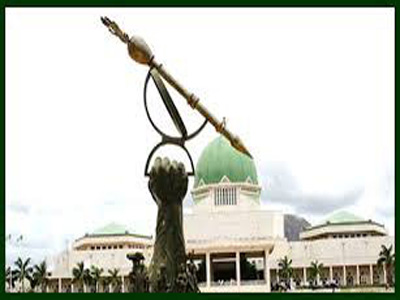It may not just be the last on scandals and alleged padding of the 2024 budget by the 10th National Assembly, following another mind-blowing allegation of spirious N6.6 trillion items of expenditure spread across 20 ministries.
Recall that the suspended Sen. Abdul Ningi (Bauchi Central) had accused the Senate President Godswill Akpabio of budget padding, made worse by the claim by Sen. Jarigbe Jarigbe that there were discrepancies in the amount of money given to Senators, with some so-called ranking Senators getting as much as N500 million, while some of their colleagues, even as ranking Senators got less.
This time, another scandal has emerged that NASS approved a total of N8,447,887,443,379 for capital projects of 20 federal ministries in this year’s Appropriation Act.
The listed ministries, according to investigations are Youths, Sports, Defence, Foreign Affairs, Special Duties, Budget and Economic Planning, Tourism, Justice and Petroleum Resources.
Others are Arts and Culture, Women’s Affairs, Education, Police Affairs, Communication and Digital Economy, Agriculture, Water Resources, Environment, Health, Solid Minerals and Works.
Surprisingly, N6,671,810,092,564 (out of the N8,447,887,443,379), representing approximately 71.98% of the total ‘Development Capital Allocation’, was “assigned to initiatives that are either elusive in terms of traceability or encumbered by significant accountability constraints”.
Similarly, some projects with specific locations are not within the statutory mandates of the respective ministries or agencies and are mostly located outside the operational jurisdictions of the organisations the money were charged to.
Currently, a document titled, “Final Summary Analysis of the Harmonized 2024 Budget (Passed)”, produced by Microxpressions Consult and submitted to the National Assembly, provides a concise overview of key items and figures from the 2024 budget, focusing on allocations to some ministries and agencies.
Analysing the document, Economic Confidential, a Nigerian based media outfit, observed that N2,486,098,619,722 (out of the N8,447,887,443,379 total budget for capital projects of the 20 listed ministries) was aggregated into regional projects, presenting substantial challenges in monitoring the fund’s deployment and gauging its utilization’s efficacy.
Similarly, additional N4,185,711,477,842 was earmarked for projects that lack specific geographic identifiers, thus complicating the traceability and accountability processes.


















